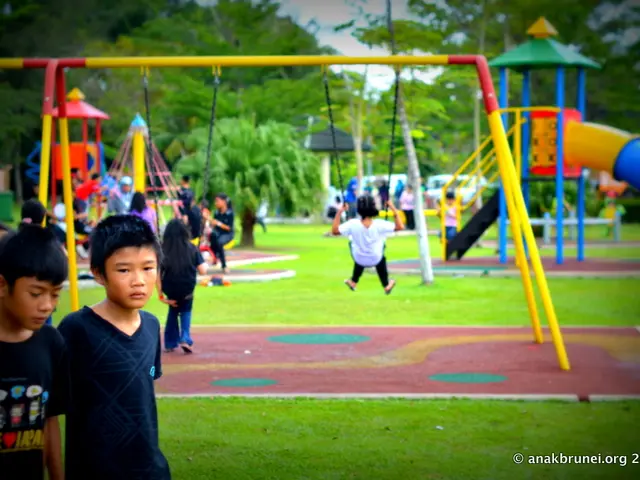Media's Tomorrow: A Summarization of Day 2 Discussions
The recent event, The Future of Media, hosted by Adwanted, brought together industry leaders to discuss the evolving landscape of media, focusing on leadership, changing consumption habits, and new strategies in social and digital media.
Changing Media Consumption Habits
One of the most significant shifts in media consumption is the rise of short-form videos, such as those on TikTok, Instagram Reels, and YouTube Shorts. These platforms are transforming how people consume news and entertainment, with young creators increasingly shaping public discourse on critical issues.
Traditional journalism is no longer the primary source for content creators, with many relying on likes and views as indicators of credibility rather than fact-checking and evidence-based reporting.
New Strategies in Social and Digital Media
Artificial intelligence is being used more extensively in content creation, audience analysis, and ad optimization. This integration is seen as enhancing human creativity rather than replacing it. Brands are also focusing on employee-generated content (EGC) and user-generated content (UGC) to provide more genuine and relatable content, as consumers increasingly demand authenticity.
Another trend is the investment in private communities and focusing on loyal customers rather than broadly targeting mass audiences.
Leadership and Strategic Thinking
The emphasis in social media careers is shifting towards strategic thinking and the ability to adapt quickly to changing algorithms and trends. Leaders are focusing on data-driven strategies and leveraging commerce media not just for sales but also for building brands.
The Overlooked Audience of Muslim Customers
Nafisa Bakker, CEO and co-founder of Amaliah, spoke about the overlooked audience of Muslim customers. Muslims currently make up 5% of the UK population (3.9 million) and have an immense buying power. However, only 14% of Muslims feel that advertising accurately represents them, while 59% of articles in mainstream media portray them in a negative light.
UM Worldwide's survey found that 50% of Amaliah's audience 'probably would' and 25% 'definitely would' purchase products from brands that portray them positively or authentically.
Notable Speakers and Findings
Omar Oakes, from The Media Leader, was featured in the article. Stephen Miron, the Group Chief Executive of a media company, spoke about his 16-year tenure and transformation of the business into a media giant.
Jamie Williams and Gonca Bubani, from Kantar, presented findings from their study Media Reactions 2024. However, the study did not reveal any specific findings about the media brand preferences of Gen Z or any differences in ad receptivity between genders.
Miron discussed his role in the consolidation in the OOH space and highlighted Global's trials in the live events and entertainment markets. Consumers are more receptive to ads today compared to the past, according to Williams and Bubani. Linear TV was revealed as the greatest driver of full profit volume when considering all three speeds of payback in a study conducted by Mindshare and EssenceMediacom.
The event The Future of Media, hosted by Adwanted, took place for a day. The article does not mention any other findings from the Media Reactions 2024 study or any changes in media brand preferences over time.
Sources:
[1] AdExchanger, 2021. The Future of Media: How Data-Driven Strategies and Commerce Media Are Transforming the Industry
[2] Digiday, 2021. The rise of TikTok and the short-form video revolution
[3] Drum, 2021. The Future of Media Awards 2021: Winners announced
[4] Forbes, 2021. The Future of Media: How AI, Authenticity, and Niche Communities Are Shaping the Industry
- The rise of short-form videos on TikTok, Instagram Reels, and YouTube Shorts is transforming how people consume news, entertainment, and even shape public discourse on critical issues.
- Brands are focusing on employee-generated and user-generated content to provide more genuine and relatable content due to consumers' increasing demand for authenticity.
- Omar Oakes from The Media Leader and Stephen Miron, the Group Chief Executive of a media company, were featured speakers at The Future of Media event, each presenting unique insights from their respective tenures and transformational roles in the media industry.
- Nafisa Bakker, CEO and co-founder of Amaliah, highlighted the overlooked audience of Muslim customers, who represent 5% of the UK population and have an immense buying power, but feel underrepresented in advertising and media.
- Artificial intelligence is being used more extensively in content creation, audience analysis, and ad optimization, enhancing human creativity rather than replacing it, while leaders are focusing on data-driven strategies and leveraging commerce media for brand building.




